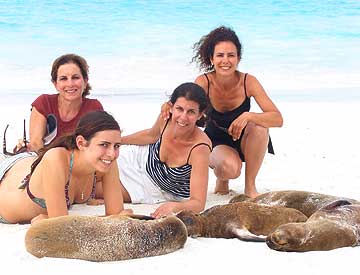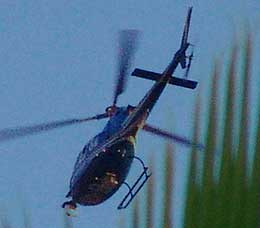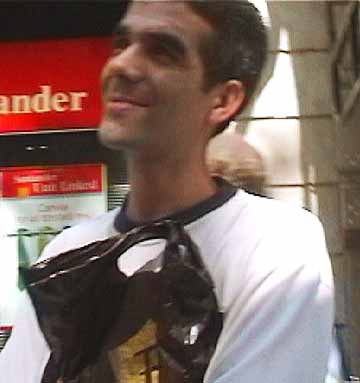And the charges are: against him, breaking and entering; against his sister, poisoning by E.coli.
It started with a loud thud in the dead of night, immediately followed by heavy breathing. I jumped out of bed and looked out the window, but it was too dark to see a thing. The labored breath was right outside. I also heard a wet trickle.

Exactly one year ago, I spent a magical week in the Galapagos. My sister chartered the 14-passenger yacht Parranda for the family. Besides our two onboard naturalists, we were six adults and six teens. I was asleep in my stateroom when I heard the intruder. Our yacht was in motion, sailing from San Salvador Island to Bartolome Island, so I couldn’t fathom who could have come aboard, or how. The chef’s provisioner? The captain’s wife? Pirates of the Galapagos?

I learned in the morning that it had been an 800-pound sea lion that had launched itself aboard for a free ride. It wasn’t alone, either. Several other beasts had made the aft deck their lounge for the night. The crew hates their visits, as they leave quite a mess behind.
A few days later, snorkeling off the coast of Floreana Island, we were joined briefly by a penguin and a couple of sea turtles. Then a flock (pride? school?) of sea lions surrounded us, jetting playfully among us with speed and grace never betrayed on land.

Close, close encounters with wild animals are thrilling, and I’ve had more than my share. I held someone’s pet bat in Ponape. I wrestled with a pair of 14-week-old lion cubs in Johannesburg. I had my hand in a kangaroo’s pouch in Sydney. I swam with hammerhead sharks in Maui, stingrays in Cayman Islands, and giant clams in Palau. To visit wild animals in their own milieu, to feel a clumsy foreigner in their domain, like an interloper and a trespasser, is wondrous. Mind-blowing. Jaw-dropping.

Jaw-dropping. Joyous. Laughing while snorkeling gets one a mouthful of seawater. The giant sea lion was just inches away from Geri when it let loose an opaque cloud.
That night onboard, all six kids got seasick at once. By morning, they had all recovered except for Geri, who deteriorated slowly. It wasn’t until she saw her doctor back home that we realized she’d been poisoned ingesting sea lion turd.



















